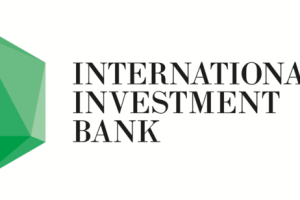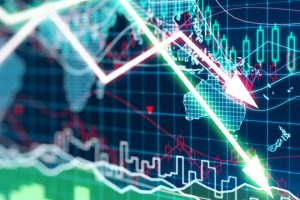Alătură-te comunității noastre!
Vezi cele mai recente știri & informații din piața de capital

German chemical giant BASF reported financial results for 2022 that were strongly influenced by the increase in prices of raw materials and energy.
Even if the Group has shown resilience in the 2022, income from operations (EBIT) before special items was 11.5 percent below the prior-year figure (€6.9 billion), but within the forecast range.
The earnings development was attributable to a strong decline in earnings contributions from the Chemicals and Materials segments, both segments recorded lower margins and volumes as well as higher fixed costs.
BASF increased sales by 11.1% to €87.3 billion, mainly by higher prices across almost all segments due to an increase in raw materials and energy prices.
The Materials and Chemicals segments implemented the highest price increases. Significantly lower volumes overall dampened sales growth in the BASF Group. Volumes development was primarily driven by lower sales volumes in the Surface Technologies and Chemicals segments.
By contrast, EBIT before special items rose in all other segments. The Agricultural Solutions segment increased EBIT before special items considerably, in particular as a result of the positive sales performance due to increases in volumes and prices.
The Nutrition & Care segment also achieved a considerable increase, mainly due to price-driven margin growth. The Surface Technologies segment recorded considerably higher earnings, especially due to increased earnings contributions from the automotive catalysts and battery materials businesses.
Higher prices and volumes in the Coatings division additionally supported the segment’s earnings performance. The Industrial Solutions segment slightly increased EBIT before special items as a result of price-driven margin growth. EBIT before special items attributable to Other improved slightly.
In 2022, BASF Group’s operational earnings were burdened by additional energy costs of €3.2 billion globally. Europe accounted for around 84 percent of this increase, which mostly impacted the Verbund site in Ludwigshafen. Higher natural gas costs accounted for 69 percent of the overall increase in energy costs globally.
Special items in EBIT amounted to minus €330 million in 2022 compared with minus €91 million in the previous year. At €6.5 billion, EBIT for the BASF Group in 2022 was considerably lower than in the previous year.
This figure includes income from integral companies accounted for using the equity method, which declined by €289 million to €386 million.
Exceptionally high impairments on the shareholding in Wintershall Dea AG negatively affected the BASF Group’s net income from shareholdings.
In 2022, net income from shareholdings amounted to minus €4.9 billion, after €207 million in 2021. The significant decline was due to special charges of around €6.3 billion, mainly from non-cash-effective impairment losses on the shareholding in Wintershall Dea AG.
These were especially due to the deconsolidation of Wintershall Dea’s Russian exploration and production activities, which subsequently resulted in a revaluation of Wintershall Dea’s Russian shareholdings.
Further write-downs were made on Wintershall Dea’s European gas transportation business, including a complete impairment on the shareholding in Nord Stream AG and the financing of the Nord Stream 2 project. Wintershall Dea’s operating earnings contribution for 2022 rose to approximately €1.5 billion, after €335 million in the previous year.
As a result of the significantly lower net income from shareholdings, net income for the BASF Group was minus €627 million compared with €5.5 billion in 2021.
Dividend proposal of €3.40 per share
At the Annual Shareholders’ Meeting, the Board of Executive Directors and the Supervisory Board will propose a dividend of €3.40 per share, equal to the prior-year dividend.
Based on the year-end share price, the BASF share would thus offer a high dividend yield of around 7.3 percent. This would represent a payment of €3.0 billion to shareholders.
Outlook for 2023 for the BASF Group
The high level of uncertainty that arose over the course of 2022 due to the war in Ukraine, high raw materials and energy costs in Europe, rising prices and interest rates, inflation and the development of the coronavirus pandemic will continue in 2023.
All of these factors will negatively impact global demand. BASF thus only expects moderate growth of 1.6 percent for the global economy in 2023 (2022: 3.0 percent).
For global chemical production, BASF expects growth of 2.0 percent (2022: 2.2 percent). The company assumes an average oil price of $90 for a barrel of Brent crude and an average exchange rate of $1.05 per euro.
Based on these assumptions, the BASF Group is expected to generate sales of between €84 billion and €87 billion in 2023. The BASF Group’s EBIT before special items is expected to decline to between €4.8 billion and €5.4 billion.
The company expects a weak first half of 2023 followed by an improved earnings environment in the second half of the year due to recovery effects, especially in China.
Foto credit: BASF SE









Vezi cele mai recente știri & informații din piața de capital